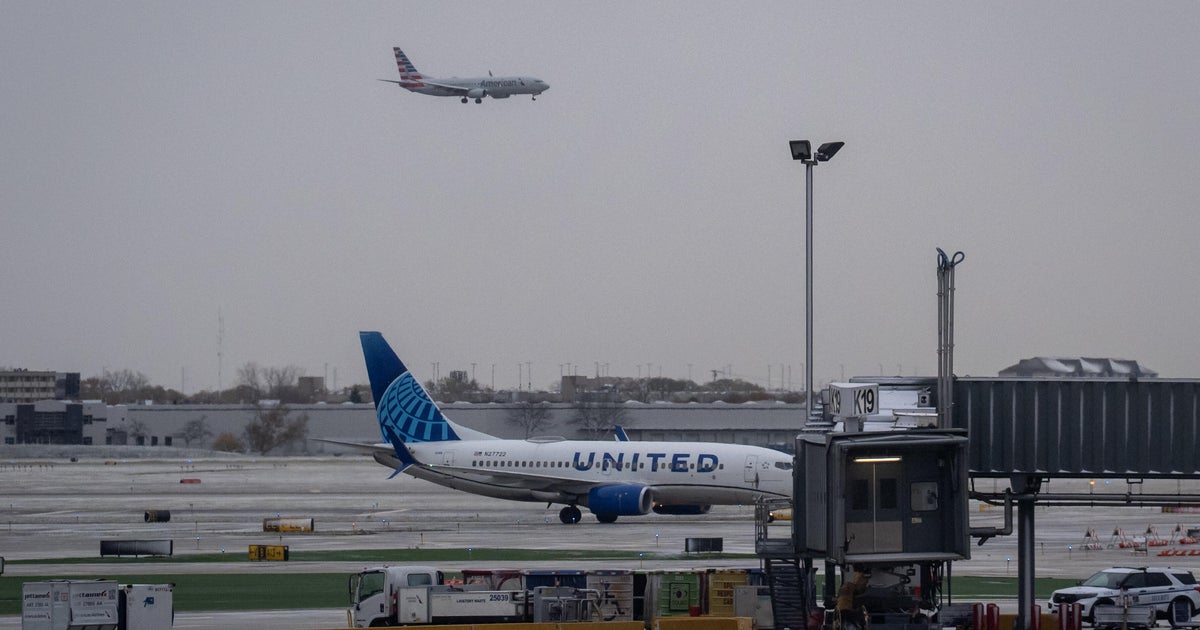American Airlines Parent Posts $162 Million Q3 Loss
DALLAS (AP) - Even higher fares couldn't pull American Airlines out of its financial nosedive.
American's parent, AMR Corp., said Wednesday that it lost $162 million in the third quarter, as fuel spending jumped 40 percent, wiping out higher revenue from fare increases and passenger fees.
It was AMR's fourth straight losing quarter and 14th in the last 16. In last year's third quarter -- often the strongest of the year for airlines because of heavy summer travel -- AMR earned $143 million, or 39 cents per share.
AMR hasn't turned a full-year profit since 2007, and it has lost more than $12 billion since 2001, adding to speculation that it could be headed toward bankruptcy protection.
American has high costs, a heavy debt load, too many gas-guzzling planes in its fleet, and years of labor problems.
AMR spent $2.3 billion on fuel, easily topping wages and benefits as the biggest third-quarter expense and swamping American's average fares increase of 7 percent.
Revenue rose 9 percent to $6.38 billion. While that was $30 million better than analysts expected, the loss of 48 cents per share was wider than analysts' forecast of 43 cents per share, according to FactSet.
Investors were disappointed. The company's shares fell 11 cents, or 4.1 percent, to $2.71 in morning trading.
Chairman and CEO Gerard Arpey said the third quarter was "challenging for American Airlines," but said the company was moving aggressively to improve. The top goal, he said, was to control costs.
As recently as 2008, American was the world's largest airline, but has since been surpassed by Delta, which bought Northwest, and United, which bought Continental. American is trying to compensate for its smaller size by expanding partnerships with British Airways and Japan Airlines to win more lucrative international travel.
As other airlines merged and returned to profitability in the last two years, analysts and investors have grown impatient with AMR management, skewering executives for failing to show enough urgency in fixing American's problems.
The last few days provided another example of AMR's woes. The company raised expectations it would settle labor negotiations with American Airlines pilots and win money-saving schedule flexibility, but there was no weekend deal and AMR's stock fell 6 percent on Monday.
American and the pilots' union could still reach an agreement any day, allowing American to argue that it is doing something to control costs and boost productivity.
The airline is also taking steps to update its fleet. It announced in July that it will buy 460 new jets from Boeing Co. and Airbus over several years. That should reduce fuel and maintenance spending, but the improvement will be gradual.
American said advance bookings are about the same as last year, but with a weak economy, it has cut the late-fall and winter flights by 3 percent compared with last winter. That should ease pressure to slash fares and help the airline cope with a high number of pilot retirements.
But American said fourth-quarter costs per mile will rise more than 6 percent over the same period last year. That figure doesn't include fuel costs.
AMR's stock price has fallen 64 percent this year -- far more than any other major U.S. airline company -- reflecting speculation that the company could be forced into bankruptcy protection like so many other carriers over the past decade.
Most analysts think that won't happen anytime soon because the company has about $4.3 billion in unrestricted cash and short-term investments that could be liquidated in a pinch.
Standard & Poor's analyst Jim Corridore said he doesn't see a need for bankruptcy in the next year but called AMR shares "high risk." He said problems include pilot retirements, lack of movement on labor talks, and AMR's need to borrow money.
(© Copyright 2011 The Associated Press. All Rights Reserved. This material may not be published, broadcast, rewritten or redistributed.)







